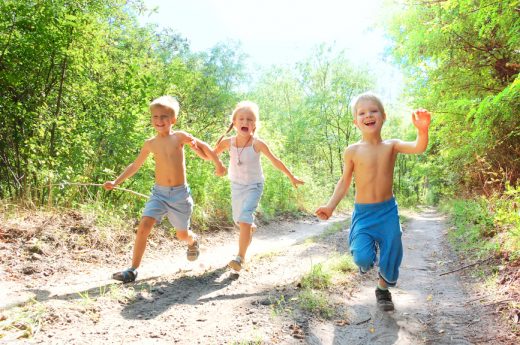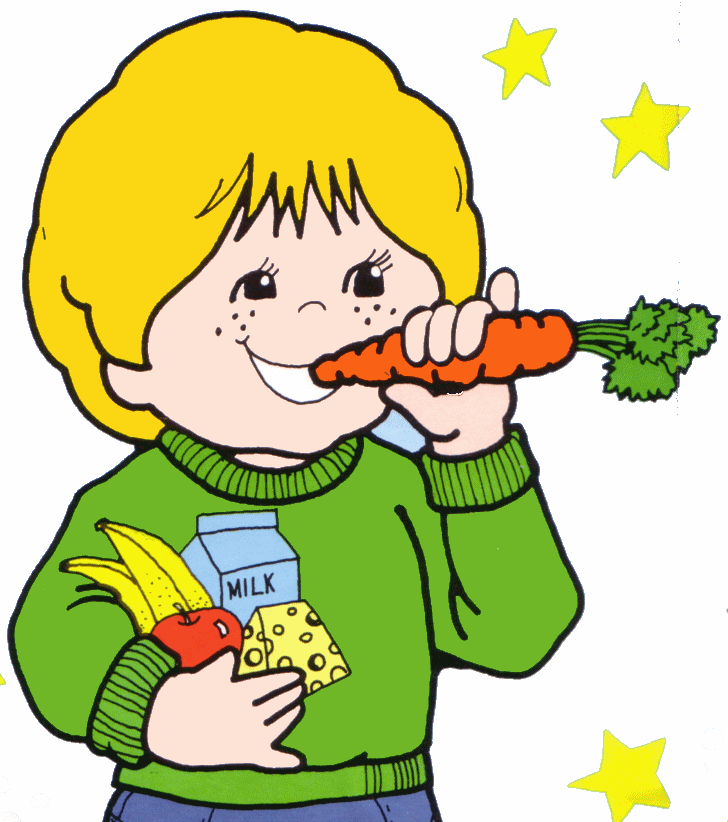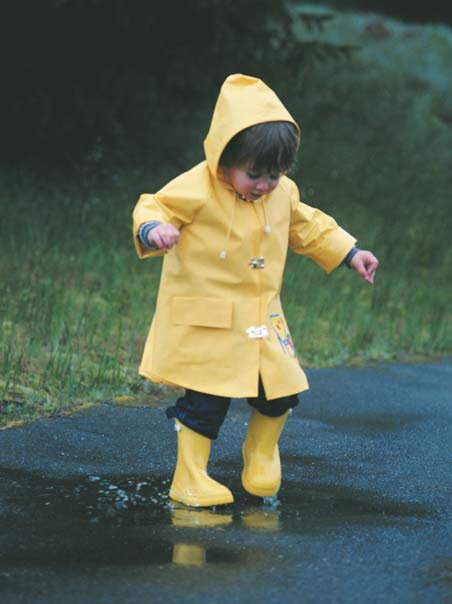Anytown Academy
School motto here
Nursery

 Important Dates
Important Dates
Early Years Sports Day - Tuesday 1st July.
Weather permitting 9.30am for morning children and 2pm for afternoon children. Refreshments available. If canceled then will be Thursday 3rd July at the same times.
Road Safety Team Visit - Wednesday 2nd July
Nursery Open Day - Wednesday July 9th.
The nursery will be closed all day for existing children
The topic for this week is
16/06/14
Splash into Summer

Dear Family,
This week in Splash into Summer! we will be learning about the changes that occur in nature during the summer season. Throughout the year the children have experienced the change of seasons. They have observed the changes in weather, types of clothing, animal behaviour and plants. Splash into Summer! brings another opportunity to observe seasonal changes.
The children will use their creative abilities through painting with bubbles, creating a garden mural, creating pictures with coloured sand and making butterflies. The Dramatic Play and Blocks Lab will be busy places as your children act out making and selling cold drinks and going on a variety of summer trips such as camping and visiting relatives. These activities give the children practise with the new vocabulary they will be learning. As the children “read” recipes and follow written directions, measure and count, make predictions and observe changes, they are learning reading, maths and science concepts. When they make ice-cream, they will use their senses to taste and smell the ingredients and see, hear and feel the changes in the ingredients.
Because life in general seems to slow its pace in the summer, you may have the chance to accompany your child’s class on a simple trip to the park for a picnic or a pretend camping trip.
Home Link activities that your child will ask you about include: the kinds of clothing you wear in the summer, if you looked for butterflies when you were a child, if you garden and what kinds of summer/ outdoor activities you do.
Children’s natural curiosity about nature leads to lots of hands-on learning. Whether you and your child enjoy being outdoors working in a garden, finding insects or playing in the rain - Splash into Summer!
Ask your child to teach you a rhyme that he or she will be learning, “Summer Days”.
Summer Days
On summer days when it is hot
(fan face with hand)
I wear my sandals quite a lot.
(point to feet)
And when I play my favourite sports
(pretend to swing a rounders bat)
I wear my tee-shirt and my shorts.
(point to upper body when you say “tee shirt”, point to lower body when you say “shorts”)
Our next topic is
Just Add Water
09/06/14

Dear Family,
Your child has probably loved water since he or she was tiny. Many children are fascinated by water spiralling down as the toilet flushes, they like to splash in the bath and they would gladly wash all the dishes if they were allowed. Whether running, rippling or just standing still, water has always attracted the interest of young children. During next week’s theme, Just Add Water, your child will have many opportunities to indulge their fascination with water.
The children will see how, when things dissolve in it, the taste and appearance of water changes. They will experience the fact that sponges, cotton wool balls and other items absorb water. Maths skills will be fostered by sorting and making patterns with plastic fish and by putting raindrops in order by size. Glasses of water will also be arranged by the colour of the water and by sound; this is an activity that would be fun to do at home.
Your child may come home with questions about the use of water in food and will be asked to report on the different ways water is used at home. You can support the week’s learnings by making a game of noticing and/ or counting how many times you use water between the time your child comes home and bedtime or how many times in the morning before school. The children will reflect upon their use of water every day and may begin to turn off the tap while in the midst of brushing their teeth to conserve water.
We are asking the children who already have a hooded raincoat or a raincoat and hat and wellies to bring these in for a short walk in the rain. Those who have umbrellas may use them carefully on our walk and also bring them in for an activity that will practise their sorting and recording skills.
An activity you might enjoy doing with your child would be to demonstrate substances dissolving in water or water being absorbed by a sponge or paper towel. Other conversations you might engage your child in could point out some places where water is found in nature: puddles, rivers, lakes, streams, ponds, the sea and oceans. If your child remembers any of this water from visiting them, talk about what he or she did there, what the water looked like - was it moving or still? Transparent or muddy? - Whether the child saw animals that lived in the water and other memories related to his or her experience at the water’s edge.
We hope you will enjoy the following traditional nursery rhyme with your child.
Rain, Rain, Go Away
Rain, rain, go away.
Come again some other day.
Little (Johnny) wants to play.

Go Fish
02/06/14
This week we will be exploring the world of sea animals- a bright, colourful world, full of variety and fascination for young children. Fish are sea animals that may be somewhat familiar to your child through the hobbies of adults and trips to the supermarket or perhaps through some fish at school. We will be exploring what makes a fish a fish, distinct from other kinds of animals and talking about the wonderful variety in the creatures that share our planet.
Fishing activities will help develop the skills your child needs to be successful, such as:
- sorting and matching
- putting together puzzles
- using imagination when pretending to fish- or to be a fish
- practising writing his or her own name
- working together on a group art project
- using muscles to jump, walk a balance beam, run fast, move like some sea creatures and stop quickly.
You can support what your child is learning at school next week by doing some of the following things together:
- set up a fishbowl
- eat fish for dinner
- spend some time exploring in a fish market or the seafood department of a shop talking about fish and watching fish being cleaned
- help your child gather up any toys that are related to life in the water
- look around the house for decorations or jewellery made from fish and/ or shells
- go fishing in a local stream/ pond, if weather permits or go and watch others fish
- visit a pet shop in the community and observe the tropical fish
- keep talking with your child about what’s happening at school
- remember to share a book each day.
We would love to have a visitor talk briefly about fishing and bring in some real fishing equipment. If you or someone in your family likes to fish, please give me a call to set up a time to visit.
Fish
Fish can swim by using their fins in a river, pond or sea.
Fish can school with their family, but don’t have arms or legs like me.
Most fish have bones from tail to tip.
They have scales, not skin or hair.
When water flows all through their gills they breathe without any air.
A Hole in the Bottom of the Sea
Sea Animals
Zoo Clues
12/05/14
Dear Family,
In Zoo Clues, our unit on zoo animals, your child will learn about zoo animals and how they are different from pets and farm animals. Children’s natural curiosity and attraction to animals make this an interesting theme for them. Throughout the week, your child will build on knowledge and skills he or she may already have acquired from previous experiences with zoo and zoo animals.
Your child will learn that zoo animals live in zoos, that they move in different ways and make different sounds and that they are cared for by zookeepers and vets. There will be two animal rhymes, including a counting rhyme.
Maths and science skills will be enhanced through counting, matching and graphing zoo animals. The children will estimate the number of zoo animals in a jar and count with the counting rhyme about a baby polar bear.
Your child will act out rhymes and stories presented during the week, using props as well as themselves. Physical skills will be developed through moving like zoo animals, listening to and making sounds like zoo animals and zoo animal puzzles, Zoo Animal Picture cards and a Zoo Animal Lotto game.
Each Home Link activity will help reinforce the focus of the day, as your child shows you how zoo animals move and make sounds, looks for pictures of zoo animals in magazines, newspapers, books or on wildlife shows on television, and tells you about The Baby BeeBee Bird, a funny Story Tree book read in class. Your child may come home saying a new rhyme. Enjoy this one with your whole family.
At the Zoo
(Tune: “Row, Row, Row Your Boat”)
See hippos and zebras and polar bears
When you’re at the zoo.
See lions and elephants and giraffes.
They are all there, too.
The Animal Boogie
Learn to count with Number Zoo | Fun zoo animals: Lions, Elephants, Monkeys. Count 1 - 10 kids
 Nursery Trip to see Theatre Iolo at Chapter Arts Centre.
Nursery Trip to see Theatre Iolo at Chapter Arts Centre.
Wed 30th April
The children really enjoyed the magical performance of Luna and all did very well walking at Miss Campbell's lightening speed to get there. A big thanks to the parents who volunteered to walk down and back with us.
)
Baa-Baa, Moo, Cock-a-doodle-
29/04/14
Dear Family,
In Baa-baa, Moo, Cock-a-doodle-doo, our unit on farm animals, your child will learn about some of the produce we get from them. Children’s natural curiosity and attraction to animals makes them eager learners for this theme.
The children will learn that chickens, cows and sheep live on farms and provide us with eggs, milk and wool, from which we can make many other products. They will learn some new farm animal rhymes and repeat one learned previously.
Maths skills will be enhanced through counting farm animals and matching Number Eggs. Hatching Chick Sequence cards will help the children understand the process of egg to chicken as well as develop concepts such as first, next and last.
The children will act out rhymes and stories presented during the week, using props as well as themselves. They will develop physical skills through moving like farm animals, e.g. waddle, hop, walk, run, gallop and through using and assembling materials in many of the labs.
Each Home Link activity will help reinforce the focus of the day, as your child asks you if you have ever lived on a farm, what your favourite farm animal is, which is your favourite milk product and what farm related products you have at home. Your child may come home saying a whole new rhyme. Enjoy this one with your whole family.
Farm Animal Talk
Mother hen wants little chick to rest and go to sleep (lay head on hand)
Little chick just runs away
(make running motion with fingers)
and says “peep, peep”.
Mother sheep wants little lamb to listen to her ma (point to ears)
Little lamb just runs away
(make running motion with fingers)
and says “baa, baa”.
Mother cow wants little calf to taste the grass that’s new (make chewing motions)
Little calf just runs away
(make running motion with fingers)
and says “moo, moo”.
The Farmyard Jamboree
Driving My Tractor (UK)
A Farmer's Life for Me
Old MacDonald Had a Farm - Nursery Rhymes
On the Farm (counting song)
![]()
![]()
Blowing in the Wind
17-03-14

Our next theme, Blowing in the Wind, will help the children explore something they have experienced many times. Through many different activities, they will begin to realise that wind is no more than moving air and that it is something we don’t see, though we feel it and see it’s effects. They will also have the experience of filling something with air and watching it empty again.
The children will watch balls and boats that can be moved by moving their breath, hear stories about wind and have the opportunity to make kites and experiment with air moving against different materials.
The children will practise sequencing the events in the story The Wind Blew. They will have the opportunity to practise language skills and sharpen their memories in retelling the story with props.
Home activities that your child will be asked to carry out this week depend largely on the co-operation of the weather. They include:
- finding things that move because of wind
- looking for a flag, weather vane or windsock
- looking for a toy at home that requires wind
- looking in the sky or in magazines or books for vehicles moved by the wind
- looking at the shapes the clouds make.
If the weather co-operates, the children will also watch clouds moving by the force of the wind into ever changing patterns. Perhaps you will be able to point out the wind’s effects at times and on days when you and your child experience wind.
We hope you will enjoy the following rhyme.
Seasons
In autumn the wind blows leaves from the tree.
(mime leaves falling from tree)
In winter the wind sends snow up my sleeve!
(look up sleeve)
The wind in spring kisses the flowers and bees.
(kiss the air)
In summer the wind is a soft, gentle breeze.
(wave arms softly)
Where We Live
10/03/14

This week, in our Where We Live unit, we will be learning about neighbourhoods. Children first learn about their homes, including the people, items and activities within them. Gradually they learn about the world outside their homes by having contact with neighbours and going with parents and friends to the local playgrounds, schools, libraries and shops.
With each added experience, children are gaining skills and knowledge in every area of development. Experiences with new sights and sounds as they travel from home to school and on other trips from home, help children develop their senses of sight, sound, touch and smell. Interacting with neighbours, friends, service people and school personnel helps them develop the ability to get along with others and learn that others may live differently from the way they do.
Neighbourhoods will be highlighted in books and new rhymes and songs. The children will increase their maths, thinking, physical and language skills through participation in basic mapping activities. They will work as a group on mapping block constructions and on their regular walk from their classroom to the outdoors. The children will review common shapes during Snack Time.
You can help your child expand his or her knowledge of the world by talking together about the sights, sounds and activities in your area.
Your child may come home singing a new rhyme learned in school. Here is one you can enjoy with your whole family
Me on the Map
A map can help me find my way
(point to self)
to go from here to there.
(point to floor and then into the distance)
From home to school,
from home to town,
from home to anywhere!
(spread arms out wide)
Last week we had a visit from David at Animalzone UK. He bought in lots of interesting animals and reptiles for us to see and touch.
09-02-14
This week our topic is Pet Parade
This week we will be learning about pets. Most children are curious about and attracted to animals, and get pleasure from observing and interacting with pets. Responsibility, kindness, vocabulary, cognitive concepts, physical skills and self-concept can all be enhanced through learning about and caring for pets.
Most children are eager to learn about being kind to animals. This provided a basis on which they can build their ideals of kindness and compassion for all living things. They will begin to understand the importance of kindness and being gentle with animals through books. The children will learn responsibility by helping to care for ‘pets’ in the classroom.
Many new vocabulary words will be introduced in this unit through stories, dramatic play and group activities. The children will develop maths skills by sorting pets based on type and skin covering (fur, feathers and scales) and by counting using pet counters.
They will increase their physical skills by working with theme-related puzzles; cutting, tearing and gluing for an art project; preparing a simple snack and running during a co-operative outdoor game. Through learning new rhymes and interacting in co-operative activities with others, the children will improve their social and personal skills.
Ask your children what they talked about in school each day. They will ask if you had pets when you were young and what pets you like best. They will talk with you about ways to be gentle with pets. Your children may come home saying new rhymes they have learned. Here is one they may want to teach you.
03/02/14 - Our theme for this week is 'Making Music'

Please bring in recycling materials to make our Instruments - yoghurt pots, plastic containers and bottles, cardboard shoe boxes and cups, rice, dried beans and lentils.
We will focus on:
- listening to and recognising sounds in their environment
- playing instruments
- imitating rhythms
- creating and playing musical instruments
- recognising opposites as they relate to music (loud/soft, fast/slow, stop/go, high/low).
At home you can:
- enjoy the musical instruments that your child brings home
- share an instrument, song or musical talent that you have or enjoy
- listen to beautiful music
- tap to the beat of a song
- listen and name the sounds that surround you every day
- encourage your child to create instruments with recycled materials.
Nursery Lending Library

Come and choose a book for you and your child to enjoy together at home.
Every Friday 11.15 – 11.30 and 3.15 – 3.30 in the sandwich room.
The Library closes promptly so make sure you arrive in time!
Tips for reading with your child
- Discuss the front cover - What do they think the story might be about?
- Explore the pictures encouraging your child to say what is happening on each page or make up their own story based on the pictures
- Ask them questions about each picture – who is in the picture, what time of day is it, where does the story take place, what are they doing? Etc.
- Point to the text as you read
- Discuss how the characters look and feel
- Relate to your child’s own experience – have they ever seen a … or been to the…, how would they feel if that happened to them?
- Discuss what they liked/disliked about the story. What was their favourite part?
- Point out the features of books, front/ back cover, title, page, page numbers, picture, text, caption, story/fiction book, information/non-fiction book.
- Be enthusiastic!
We love reading stories and really value our books, so please take great care with them and return them by the following Friday.

Snack Money

Snack money is collected every Monday. It is £1 per week and covers the cost of providing your child with a daily healthy snack.
We endeavour to offer a choice of snack each day so that there is something for everyone. The money also contributes towards buying ingredients for cooking and making play dough.
If you are finding difficult to remember, you can pay for the whole term in one go.

Appropriate clothing

An important part of the Foundation Phase is that your child has access to both the indoor and outdoor learning environments. This means that even in bad weather your child will have the opportunity to go outside to learn. We are keen that you send your child to nursery with appropriate clothing and that they bring a rain/warm coat to school every day. In warm weather please send your child with a hat and ensure you have put sunscreen on them.
All website content copyright © Lansdowne Primary School : Website Policy Website design by PrimarySite.net
























































































































































































































































































































